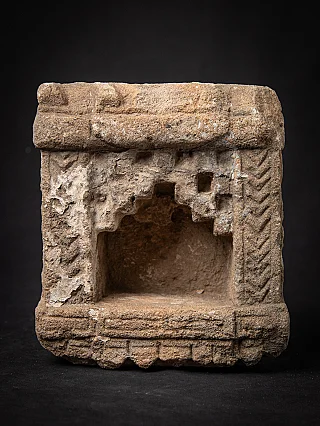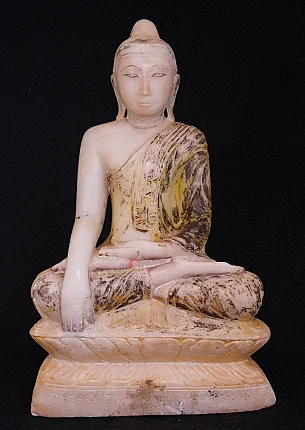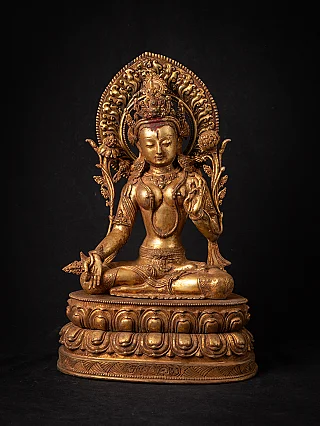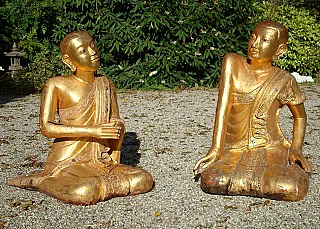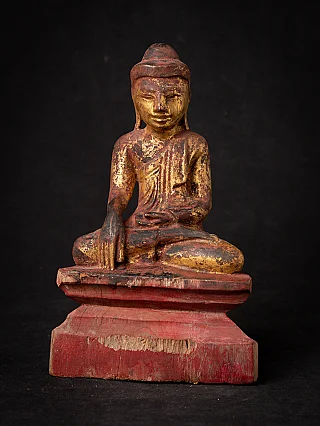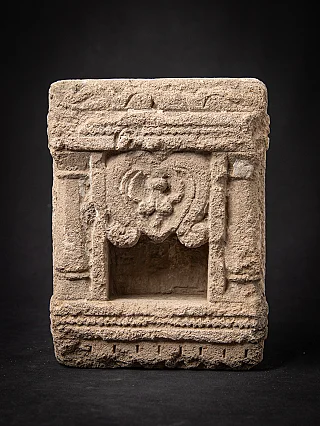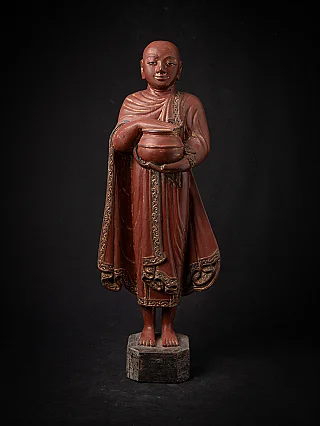Rahula - Son and Great Disciple of Lord Buddha
Author : Peter Vredeveld

Rahula was the son and one of the ten Great Disciples of Lord Buddha. Rahula was also called "Rahula The Lucky."
Rahula was the only biological son of Siddhartha Gautama and Queen Yasodhara. According to Buddhist tradition, Rahula was very young when Prince Siddhartha decided to live an ascetic life and seek the true meaning of life and the cycle of Samsara.
Rahula's Journey

Later, Rahula became a Buddhist monk and attained Enlightenment. Legend has it that he was called "Rahula The Lucky" by his friends, recognizing his unique status as the son of Lord Buddha, who achieved Enlightenment. Rahula is also considered one of the ten Great Disciples of Lord Buddha. Unfortunately, he died young before the departure of Lord Buddha.
Departure from Royalty
Before leaving his royal life, Prince Siddhartha referred to Rahula as a "fetter" since Rahula could tie him to Yasodhara and potentially hinder his quest for truth, represented by the Wheel of Life.
History

Rahula's Significance
Rahula's birth was believed to be a key factor motivating Prince Siddhartha's decision to renounce palace life and seek the deeper truths of existence. Rahula was the grandson of King Suddhodhana, the Shakyan king of Kapilvastu. On the eve of Siddhartha's departure, he peeked at his family for the last time, with Rahula's face hidden by Yasodhara's arm.
Return to Kapilvastu
After nine years, Lord Buddha returned to Kapilvastu, where Yasodhara introduced Rahula to his father. Yasodhara requested that Rahula be given the inheritance to become king after King Suddhodhana's death. However, Lord Buddha decided that Rahula would inherit his Enlightenment and knowledge of life and Dharma.
Rahula's Childhood
Rahula's early years were marked by his father's absence, who had embarked on a spiritual journey. The young Rahula grew up in the palace under the care of Queen Yasodhara and the palace staff. Despite his father's absence, Rahula's destiny intertwined with the events shaping Buddhist history.
Lord Buddha's Observations
Upon returning to Kapilvastu, Lord Buddha observed Rahula's maturation and recognized a deep longing for knowledge and spiritual growth. This recognition was pivotal in Lord Buddha's decision to include Rahula in the monastic order and impart his teachings to his son.
Rahula, as a Buddhist Monk

Equal Treatment: After joining the Order, Rahula received no favoritism from Lord Buddha and was required to follow the same rules as other monks. Lord Buddha occasionally taught Rahula personally, praising him as the most eager for training.
Teachings and Challenges: Rahula faced challenges, such as misdirecting someone seeking the Buddha. In response, Lord Buddha used these incidents to teach Rahula about the consequences of lies and the importance of mindfulness.
Meditation and Enlightenment: Lord Buddha taught Rahula how to meditate, and at 18, Rahula attained Enlightenment. Despite dying young, Rahula's dedication and achievements were recognized by the Great Mauryan Emperor Ashoka, who constructed a stupa in Rahula's honor.
Our catalog with antique statues
Rahula's Dialogues with Lord Buddha
Rahula engaged in profound dialogues with Lord Buddha, seeking guidance on various aspects of life and the path to Enlightenment. One such dialogue, recorded in the text of Ambalatthika-rahulovada Sutta in the Pali Tripitaka, reflects the depth of Rahula's inquiries and Lord Buddha's insightful responses.
Buddha's Teachings to Rahula
Buddha called Rahula so that he could discuss the Dharma in such a way that Rahula could understand and remember. Pleased Rahula washed Buddha's feet with the water in a basin.
"Rahula, do you see this little bit of leftover water?"
"Yes, sir."
"That's how little of a monk there is in one who feels no shame at telling a lie."
When the leftover water was tossed away, the Buddha said, "Rahula, do you see how this little bit of water is tossed away?"
"Yes, sir."
"Rahula, whatever there is of a monk in anyone who feels no shame at telling a lie is tossed away just like that."
Then the Buddha turned the water dipper upside down and said to Rahula, "Do you see how this dipper is turned upside down?"
"Yes, sir."
"Rahula, whatever there is of a monk in anyone who feels no shame at telling a lie is turned upside down just like that."
After hearing such knowledge from Lord Buddha, Rahula learned how to purify his actions and tried to consider the consequences of his actions. Later, Buddha taught Rahula about the way of meditation. At the age of 18, Rahula attained Enlightenment. According to Buddhist tradition, Rahula died young after achieving Enlightenment. The Great Mauryan Emperor and Buddha follower, Ashoka the Great, constructed a stupa in Rahula's honor.
The teachings and dialogues between Rahula and Lord Buddha exemplify the depth of Buddhist philosophy and the pursuit of spiritual Enlightenment. These interactions serve as timeless lessons for those on the path to understanding the nature of existence and the significance of moral conduct.
Share this page



















